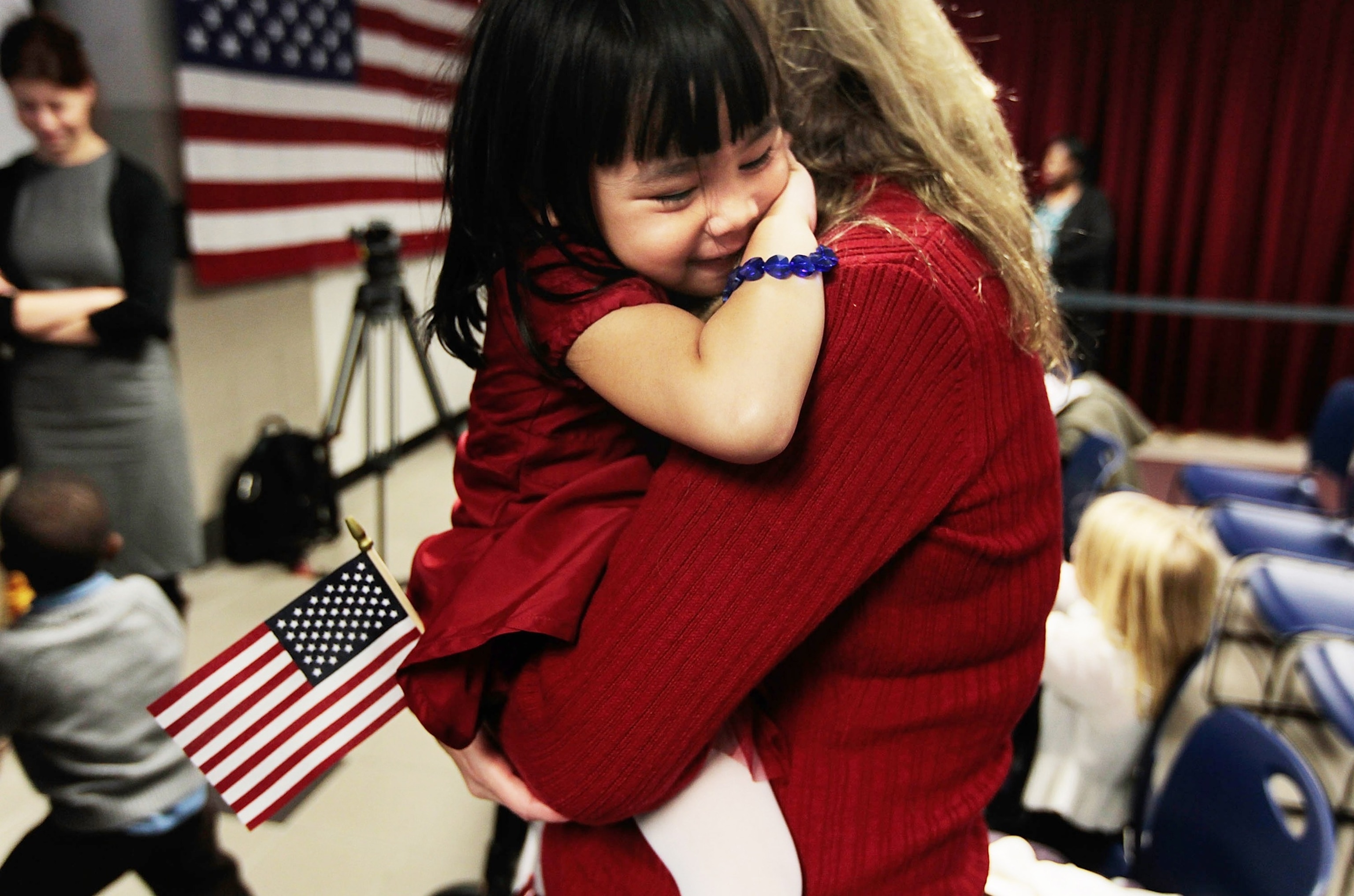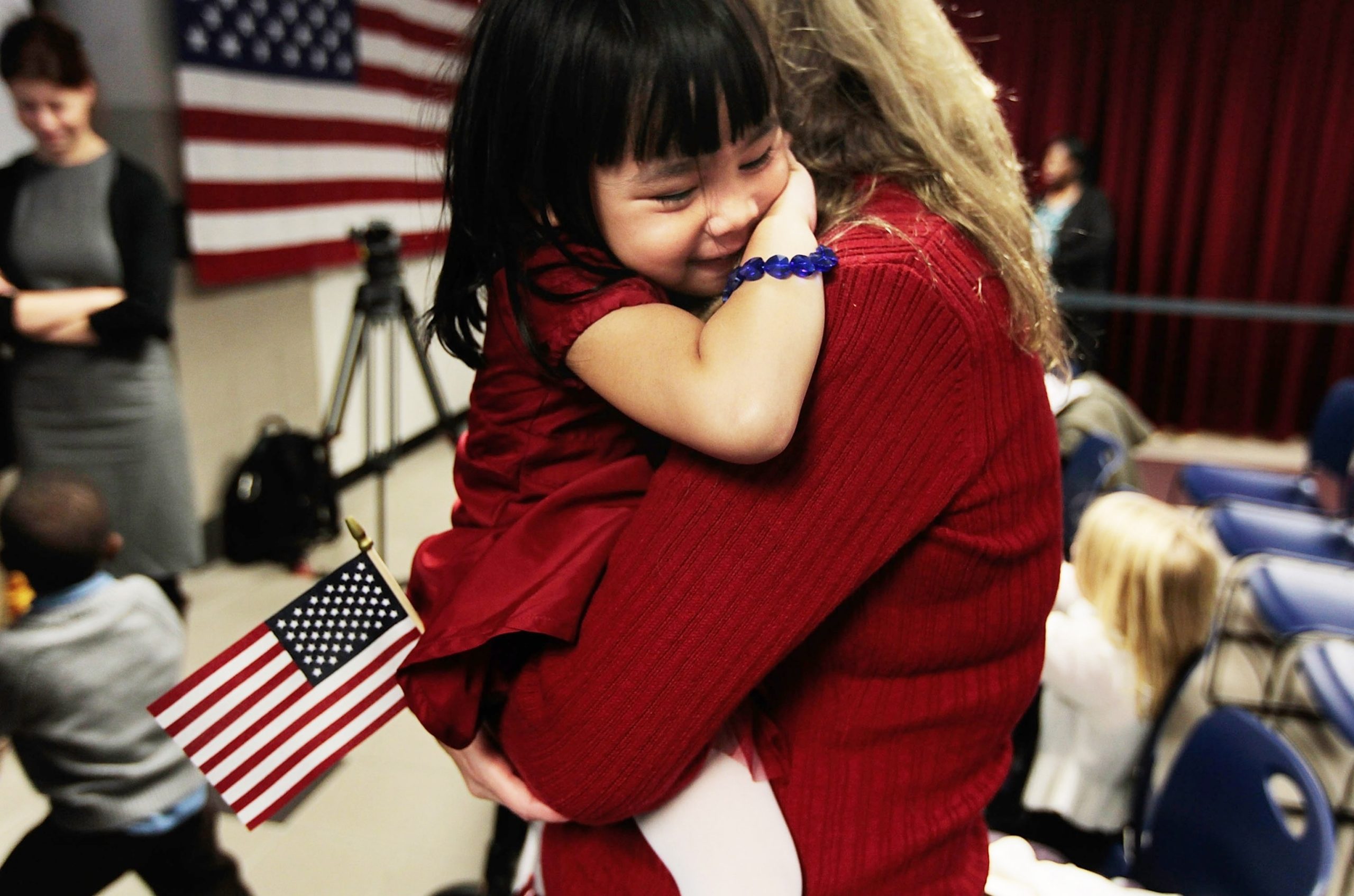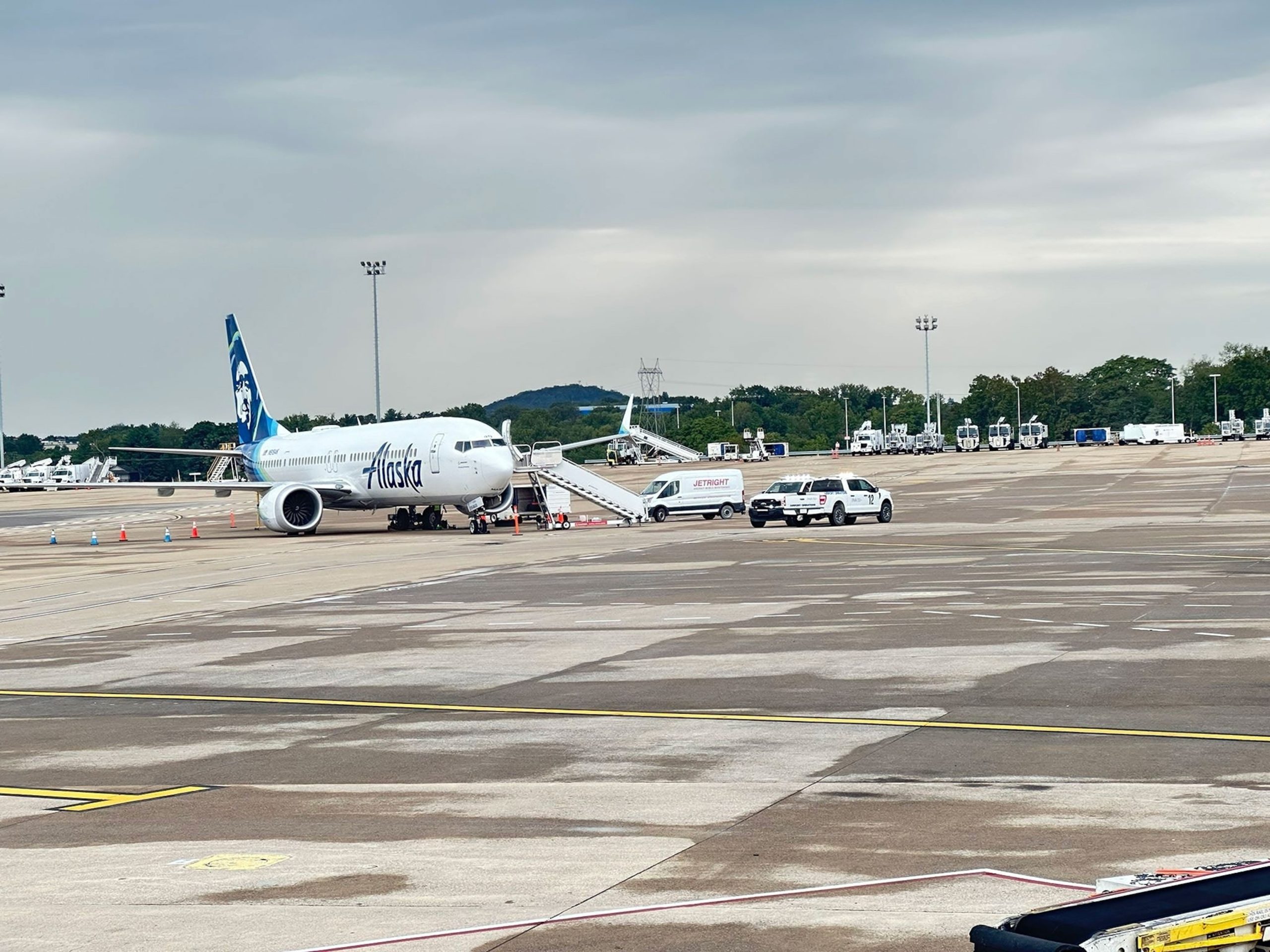China has ended foreign adoptions of Chinese children, a move that could potentially impact hundreds of U.S. families.
The confirmation of China’s change in policy was announced Thursday by the country’s Ministry of Foreign Affairs.
“China will not send children abroad for adoption,” Foreign Ministry Spokesperson Mao Ning said in a Sept. 5 press conference. “This is also in line with the spirit of relevant international covenants. We express our appreciation to those foreign governments and families, who wish to adopt Chinese children, for their good intention and the love and kindness they have shown.”

In this file photo, newly-naturalized Jillian, 4, originally from China, is held by her adoptive mother Eileen Kalerduring during a ceremony at the U.S. Citizenship and Immigration Services offices in New York City, Nov. 18, 2010.
Chris Hondros/Getty Images/FILE
ABC News has reached out to the Department of State for comment but has not yet heard back.
The U.S. embassy in Beijing is requesting clarification in writing from China’s Ministry of Civil Affairs on the change, the State Department said Thursday, according to the Associated Press.
The move comes four years after China suspended foreign adoptions during the COVID-19 pandemic in 2020 and then resumed a small number of cases in 2022 and 2023. Only 16 adoptions from China were finalized in 2023, according to a State Department report, down considerably from 2008-2016, when the State Department was reporting approximately 2,000 to 3,000 adoptions from China each year.
Editor’s Picks
China, along with the U.S, is a member participant of the Hague Adoption Convention, which protects intercountry adoptions but China had only allowed adoptions from China to the U.S.
Ryan Hanlon, the president of the National Council For Adoption, an adoption advocacy nonprofit, said the ending of Chinese adoptions will impact “hundreds of families.”
“The news that China will be ending intercountry adoption is very disappointing, primarily for the children who will continue to live in orphanages instead of families, but also for the families who have been matched with a child for adoption and have waited years, only to learn this sad news,” Hanlon said in a statement to “Good Morning America.” “Hundreds of families had been approved by China’s government for adoption and have faithfully waited more than four years, beginning with COVID-19 shutdowns until now.”
“We hope the governments of China and the United States can find a way to cooperate in this regard and prioritize the best interests of children,” Hanlon added.
China’s population has been on the decline, falling for a second year in a row to about 1.4 billion, as the Associated Press reported in January. The Chinese government has been working to address concerns and in 2015, the ruling Chinese Community Party ended its controversial one-child family planning policy after 36 years.
China’s recent decision to end foreign adoptions has sent shockwaves through the international adoption community, leaving hundreds of families in limbo. The announcement, made by China’s Ministry of Civil Affairs, cited concerns over the welfare of children and the need to prioritize domestic adoption as reasons for the decision.
For decades, China has been one of the most popular countries for international adoptions, with thousands of children finding loving homes in countries around the world. However, in recent years, the Chinese government has been taking steps to reduce the number of foreign adoptions, with stricter regulations and a focus on promoting domestic adoption.
The impact of this decision on hundreds of families who were in the process of adopting a child from China is devastating. Many of these families have already invested significant time, money, and emotional energy into the adoption process, only to have their hopes dashed by this sudden policy change.
For some families, the end of foreign adoptions means that they may never be able to fulfill their dream of becoming parents. Others are left wondering what will happen to the child they were in the process of adopting, and whether they will ever be able to bring them home.
In addition to the emotional toll, the financial implications of this decision are significant. Families who have already paid fees for adoption services, travel expenses, and other costs associated with the adoption process may be left with little recourse for recouping their money.
Furthermore, the end of foreign adoptions in China raises questions about the future of international adoption as a whole. Will other countries follow suit and restrict foreign adoptions in favor of domestic placement? And what will happen to the thousands of children around the world who are in need of loving homes?
Despite the challenges and uncertainties that lie ahead, many families are determined to continue fighting for the children they have come to love and care for. They are advocating for their rights and working tirelessly to find alternative solutions to bring their children home.
In the midst of this difficult situation, it is important for families to seek support from each other, as well as from adoption agencies and advocacy organizations. By coming together and sharing their stories, these families can raise awareness about the impact of China’s decision and work towards finding a resolution that is in the best interest of the children involved.
Ultimately, the end of foreign adoptions in China serves as a stark reminder of the complexities and challenges that come with international adoption. While the road ahead may be uncertain, one thing remains clear: the love and dedication that these families have for their adopted children will never waver.



